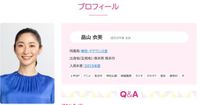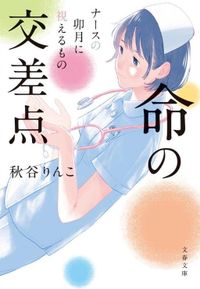In Japan, the landscape of education is rapidly evolving, particularly in the realm of entrance examinations for private schools. Despite a declining birthrate, the number of applicants for private elementary schools continues to rise, reflecting a significant shift in how families prepare for education. This trend is particularly pronounced in Tokyo, where approximately one in three sixth-graders is taking the junior high school entrance exam, creating what has been termed a "junior high school exam bubble." The ultimate goal for many of these students is to gain admission to prestigious universities, intensifying the competition among examinees.
The current examination wars are being shaped by several factors, including the declining birthrate and the impending implementation of high school tuition waivers. As families navigate this complex landscape, many students are turning to cram schools and preparatory institutions for assistance. A recent article from Weekly Bunshun delves into the realities of these renowned cram schools, which play a significant role in the entrance exam process across elementary, junior high, and university levels.
In a surprising turn of events during the 2025 junior high school entrance exams, the dominant cram school, SAPIX, experienced a notable decline in its success rate for students entering prestigious schools. Hiroaki Hirono, head of the education business headquarters at SAPIX, known as "the man who knows everything about SAPIX," addressed this issue in a recent interview, shedding light on the fluctuating dynamics of the exam landscape.
On the other hand, Yoyogi-ko, a cram school specializing in preparing students for the University of Tokyo, has reported impressive results. In the fiscal year 2024, Yoyogi-ko alone produced 482 successful candidates for the University of Tokyo. Particularly remarkable is the Tetsuryokukai, another cram school that focuses on University of Tokyo exam preparation. It boasts an extraordinary achievement, with 44 out of 100 students in the Faculty of Medicine's most challenging category, Science III, coming from Yoyogi-ko. This success raises questions about the factors contributing to such high performance in these specialized cram schools.
In an effort to uncover the secrets behind the success of these institutions, Weekly Bunshun conducted an investigation into the Tetsuryokukai, which remains somewhat enigmatic. Hideto Mimaki, the head of the English department and an active lecturer at the school, provided insights during an interview, discussing the rigorous training and methodologies that contribute to their students' success.
As the number of applicants for private elementary schools continues to grow, the world of entrance exams remains shrouded in mystery. Parents often face an uphill battle in understanding this complex system, which is rife with connections, insider knowledge, and financial considerations. A journalist from Weekly Bunshun has embarked on a mission to peel back the layers of this "secret veil," revealing startling truths about the entrance exam industry.
In a particularly shocking revelation, the fourth installment of the electronic version's original series, "Shin・Ojuken Senso," uncovered that the well-known cram school AiQ was charging parents 7.7 million yen under the guise of "kokorozuke," a term referring to a form of monetary gift or bribe. This discovery has sent ripples through the entrance exam community, raising ethical questions about the practices employed by some institutions.
Moreover, the investigation also brought to light a surprising past regarding former cram school director Nobuo Shiraishi, further complicating the narrative surrounding AiQ and its operations. The findings have shocked many within the entrance exam industry, prompting discussions about the ethical implications of such practices.
In a related development, Bungeishunju, a prominent publishing company, has announced its participation as a judge in the "Creation Grand Prize 2025," one of Japan's largest creative contests hosted by note. Four editorial departments from Bungeishunju will judge eight notable categories, including mystery, horror, romance, workplace, fantasy, essay, business, and manga.
The contest aims to discover new talent, and Akiko Akiyama, who won the Bessatsu Bungeishunju Prize in 2023, has gained significant attention with her debut novel, "What Nurses Gaze at in the Hazuki Moon." In May 2025, she will release her third book in the series, which has already surpassed 100,000 copies in total sales.
Moreover, Bungeishunju is not only focused on uncovering new literary talents but is also seeking a "star of business books" for this year's contest. The application period for the "Creation Grand Prize 2025" runs from April 22, 2025, to July 22, 2025, with a reader support period extending until July 31, 2025. Interim announcements are scheduled for mid-September, with the final results and award ceremony slated for late October.
The contest features various awards, including the Media Award, which recognizes works from participating media outlets and offers a prize of 100,000 yen. Additionally, the note Award will be given to several works, while the Award for Excellence and Reader Award will also recognize outstanding submissions. The Best Reviewer Award will reward about ten individuals with Amazon gift cards for their feedback on the contest entries.
As the education landscape continues to shift, the entrance exam wars in Japan remain a hot topic, with both parents and students navigating a complex system that is increasingly influenced by external factors. The revelations surrounding cram schools, along with the ongoing search for new literary talent through initiatives like the "Creation Grand Prize 2025," highlight the dynamic nature of this environment.






